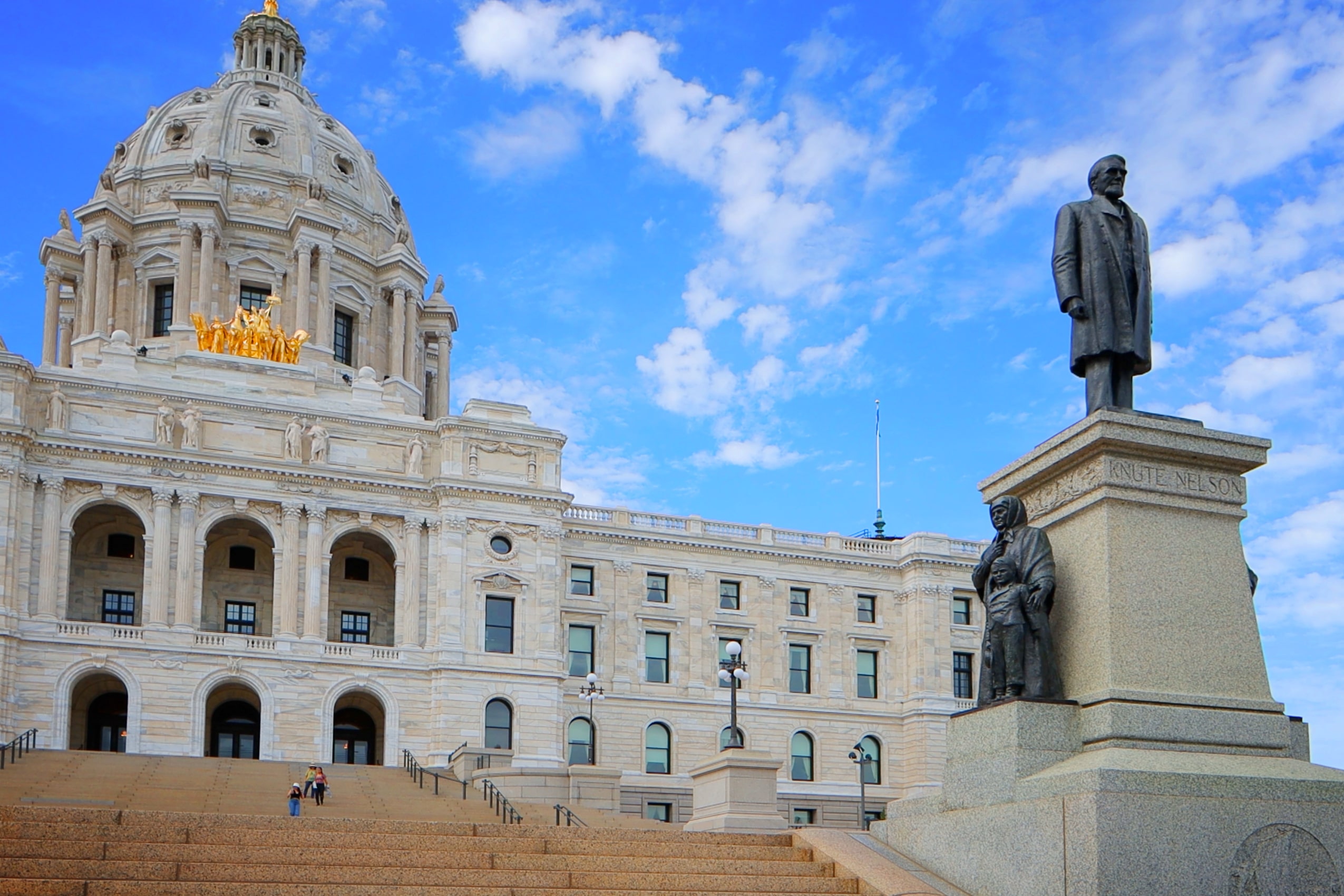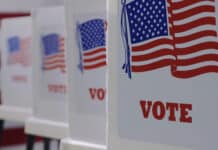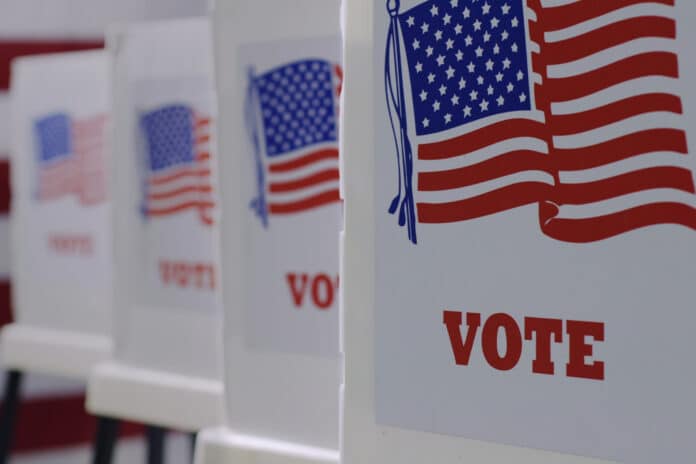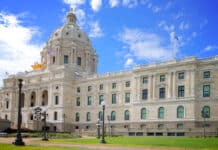The constitutional ballot question that is being posed to Minnesotans this election season seems innocuous enough.
“Shall the Minnesota Constitution be amended to protect drinking water sources and the water quality of lakes, rivers, and streams; conserve wildlife habitat and natural areas; improve air quality; and expand access to parks and trails by extending the transfer of proceeds from the state-operated lottery to the environment and natural resources trust fund, and to dedicate the proceeds for these purposes?”
But for those Minnesotans casting ballots to fully understand what they are voting for, or against, it might help to be one of the 201 state legislators who debated and passed a bill last year that ended up placing the amendment on the 2024 ballot.
Why is that?
Because all of the proposed changes that would take place within the state-operated Environment and Natural Resources Trust Fund are not included in the plain language of the question. Those details are buried in the legislation itself.
Here’s a crash course on the amendment question and what happens if the ballot measure passes or fails:
How does a ballot amendment pass or fail in Minnesota?
First, at least 50 percent of voters who cast ballots in Minnesota must mark “YES” in order for any constitutional amendment referendum to pass. If someone does not vote on the measure, that counts the same as a “NO” vote.
Since 1996 voters have approved eight of 10 constitutional amendment ballot measures. The two that failed were both on the ballot in 2012, a same-sex marriage ban and a voter ID requirement.
Details are buried in legislation, not the ballot question
The ballot question itself doesn’t include any details on the amount or percentage of state lottery dollars that would continue to be dedicated to the Environment and Natural Resources Trust Fund.
Nor does it include the duration for which the transfer of those funds would be extended. Voters would have to read the actual legislation, which Gov. Tim Walz signed into law, to discover those details.
If passed, the Minnesota constitution would be amended to extend by another 25 years the annual transfer of 40 percent of state lottery proceeds to the Environment and Natural Resources Trust Fund.
And there’s more.
Language included in the legislation would require the Environment and Natural Resources Trust Fund to dedicate 1.5 percent of state lottery revenues to “expand the number and diversity of recipients who benefit from the environment and natural resources trust fund, especially in communities that have been adversely affected by pollution and environmental degradation.”
The constitutional amendment, according to the legislation, would also trigger the creation of a grant advisory council.
Language in the legislation would require the DNR commissioner to appoint 11 people to the council, two of whom must be members of “the Minnesota Ojibwe Tribe,” two who are members of the Minnesota Dakota Tribe and four members who “identify as Black or African American, Hispanic or Latino, Asian, or Pacific Islander or as members of a community of color.”
The language of the legislation would also bar use of funds allocated by the trust for use in capital projects.
It’s worth noting, although constitutional amendments do not require signature of the governor to reach the ballot, Walz signed the bill because of the numerous statutory changes to the program that would be triggered if the amendment passes.
What happens if the ballot measure fails?
It’s complicated, according to an analysis of the ballot measure conducted by the Minnesota Voters Alliance.
“A ‘NO’ vote does not remove the funding from the original amendment/implementation because it has not expired,” the organization said. “The current money will continue to fund environmental programs as Minnesotans desire and can be extended, when it does expire, by a simple renewal by the Legislature.”

MVA emphasized that it is not endorsing or opposing the amendment, but it believes that educating voters on the details behind the ballot measure is paramount to its mission.
Organizations campaigning for its passage say if the ballot measure fails, then the legislature would have to step in and allocate those dollars through statute.
“Renewing lottery funding is not controversial nor a tax increase,” said Marcus Starr, campaigns director at Conservation Minnesota. He also indicated that if “over 50 percent of the people either vote ‘No’ or leave it blank, what would happen is that money would then have to be decided by the legislators.”
What is the Environment and Natural Resources Trust Fund?
The Environment and Natural Resources Trust Fund was created, via constitutional amendment, in 1988, along with a state lottery to fund it. Since then, 40 percent of annual state lottery proceeds are directed to the environmental fund. The other 60 percent flows into the state’s general fund. In 1998, voters passed a constitutional amendment to extend the life of the trust fund to 2025. That’s why the amendment to extend the fund to 2050 is on the ballot this year.
A group of more than 130 businesses and non-profit organizations announced last month that they would advocate for passage of the amendment.
The environmental fund is managed by the Legislative Citizen Commission on Minnesota Resources composed of five legislators from the state House and Senate, two citizens appointed by each chamber and five people appointed by the governor. The commission is charged with making recommendations each legislative session on which projects to fund with the revenue set aside from lottery proceeds. Earlier this year the legislature approved a bill that included 101 LCCMR-recommended projects totaling about $80 million.
Who is pushing for passage of the amendment?
The organization chiefly responsible for campaigning for a “YES” vote on the ballot measure is calling itself “Minnesotans for Our Great Outdoors.” The organization is actually a subsidiary of Conservation Minnesota Voter Center, Inc., which registered “Minnesotans for Our Great Outdoors” with the secretary of state in October 2023. The organization is led by Gia Vitali and Jeff Blodgett, and tracks votes of state legislators on environmental issues and advocates for environmental issues at the state Capitol.
Minnesotans for Our Great Outdoors said at a press conference last month that it’s garnered support for the ballot measure from more than 130 businesses and non-profit organizations across the state. Campaign finance reports indicate that Minnesotans for Our Great Outdoors has received $200,000 in donations from prominent Democratic donor Alida Messinger.
What are people saying?
Authors of the legislation that placed the amendment on the ballot include 18 metro-area DFLers, and one Republican, Rep. Andrew Myers, R-Tonka Bay.
The bill to place the constitutional amendment on the 2024 general election ballot passed in the state House by a margin of 87-41, including support from all 70 Democrats and 17 Republicans. The bill passed in the state Senate by a margin of 36-29, with two Republicans joining Democrats in voting “yes.”
All 41 no votes in the House came from Republicans who represent districts in all corners of the state.
One of those is Walter Hudson, R-Albertville, who says when voters are preparing to vote on a ballot question, “what you should ask yourself is what are they not telling me about what this does?”
Hudson said in an interview last week he opposed the bill that contained the constitutional amendment and accompanying statutory changes to the Environment and Natural Resources Trust Fund because of how a portion of the lottery money it receives would be distributed to activist groups through what he believes is a more politically-charged mechanism.
“What this ballot question should say, if it was accurate, the ballot question would read, ‘should the state of Minnesota set aside roughly $11 million every year to give to woke activist groups?’” Hudson said during a radio interview on the topic Thursday on KTLK AM 1130. “Because that’s what it’s going to do.”
Hudson said that $11 million is a rough estimate based on the $725 million the state lottery brings in annually. While 60 percent of lottery proceeds are directed to the state’s general fund, 40 percent go to the Environment and Natural Resources Trust Fund.
“This (ballot measure) is basically enshrining into the constitution an annual campaign finance mechanism for the DFL (aligned activist organizations),” Hudson told KTLK radio host Jon Justice.
But at least one DFL sponsor of the legislation is claiming that funding and creation of the new advisory group will do the opposite.
“To have that extra fund to be able to do the kinds of projects that are going to set us out ahead is going to be really, really important,” said Sen. Jen McEwen in an interview last week with a Mankato news station. “We are trying to make a couple of changes to try to depoliticize the fund as much as possible.”
Hank Long
Hank Long is a journalism and communications professional whose writing career includes coverage of the Minnesota legislature, city and county governments and the commercial real estate industry. Hank received his undergraduate degree at the University of Minnesota, where he studied journalism, and his law degree at the University of St. Thomas. The Minnesota native lives in the Twin Cities with his wife and four children. His dream is to be around when the Vikings win the Super Bowl.

















